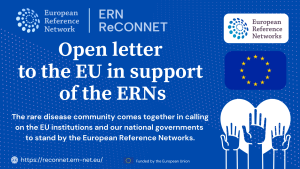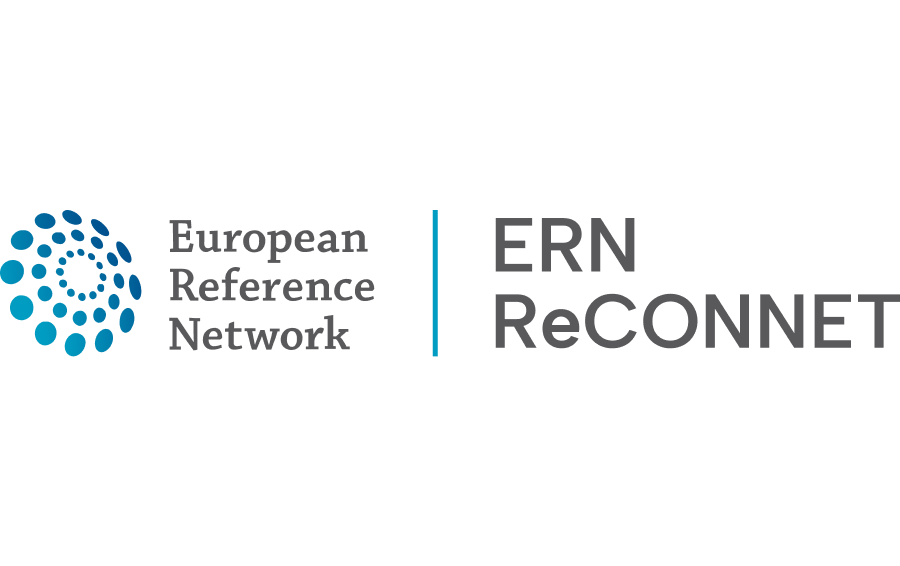Open Letter to the EU institutions and our national governments to stand by the ERNs
 ERN ReCONNET supports the Open Letter to the EU institutions and our national governments to stand by the European Reference Networks (ERNs) as our Network Coordinator, Prof. Marta Mosca, together with Ilaria Galetti and Charissa Frank, as ERN ReCONNET European Patient Advocacy Group (ePAGs) representative signed the document.
ERN ReCONNET supports the Open Letter to the EU institutions and our national governments to stand by the European Reference Networks (ERNs) as our Network Coordinator, Prof. Marta Mosca, together with Ilaria Galetti and Charissa Frank, as ERN ReCONNET European Patient Advocacy Group (ePAGs) representative signed the document.
This is an official “call on the EU institutions and EU Member States’ governments to stand by the ERNs and to uphold their commitment to enable long-lasting impact in people’s lives and, fundamentally, give all people living with a rare or complex condition in Europe the same opportunities to access timely and adequate specialised healthcare”.
The European Union and its Member States have fostered tremendous progress in this area, as stated in the Open Lettter, and the establishment and support of the Networks’ endeavours prove that Europe has, and continues to be, a global leader in highly specialised healthcare innovation. The community applaud the steadfast leadership from the European Commission and the Health Commissioner, and the political support from the EU institutions that have recognised the strategic opportunity of enhanced EU cooperation to address the healthcare needs of people with rare and complex conditions.
The ERNs proved to be the most successful innovation in the area and key to achieving this goal, as patient representatives and clinicians, saw their positive impact on the rare disease community. Proved was also the prompt response of the ERNs clinicians to tackle the COVID-19 pandemic since its beginning: All the 24 ERNs were able to pool their collective expertise and knowledge, and publish their expert opinion on the priorities and contraindications of COVID-19 vaccination for adult patients with a rare or complex condition falling under the scope of each Network.
Few numbers to prove the support provided by the ERNs since 2017, when the Networks were established:
- The Networks’ experts have discussed and provided virtual EU crossborder consultation on 3,450 cases regarding diagnosis, treatment and disease management, allowing expertise, rather than people, to travel across borders for the delivery of high quality care
- The ERNs have also developed, as well as appraised and endorsed, more than 400 clinical practice guidelines and have produced valuable resources in all EU languages for people living with a rare and complex conditions
- Structured training and education programmes for young clinicians and healthcare professionals have been set up to counter the decreasing numbers of rare disease experts
The Networks demonstrate to have the potential to harness EU solidarity for enhancing health equality across our countries and expanding our health systems’ capabilities to diagnose, treat, and manage rare and complex conditions. Nevertheless, ERNs have not yet fully delivered on their potential and we know there is still a long way to go to achieve health equality and equity across the European Union for the vulnerable population they serve.
The next EU political cycle must succeed in fully consolidating the Networks and their seamless integration into cross-border and national healthcare systems.
As a new EU political cycle approaches, we call on the EU institutions and EU Member States’ governments to stand by the ERNs and to uphold their commitment to enable long-lasting impact in people’s lives and, fundamentally, give all people living with a rare or complex condition in Europe the same opportunities to access timely and adequate specialised healthcare.







